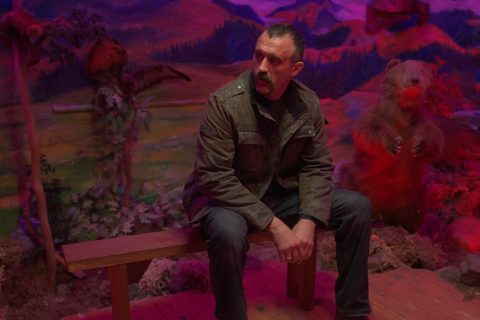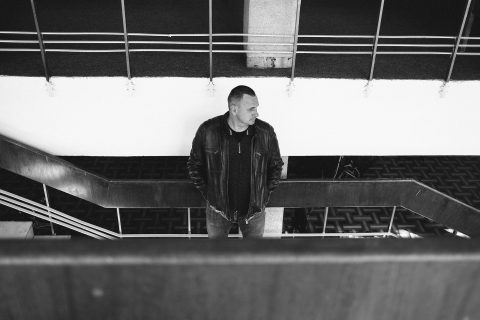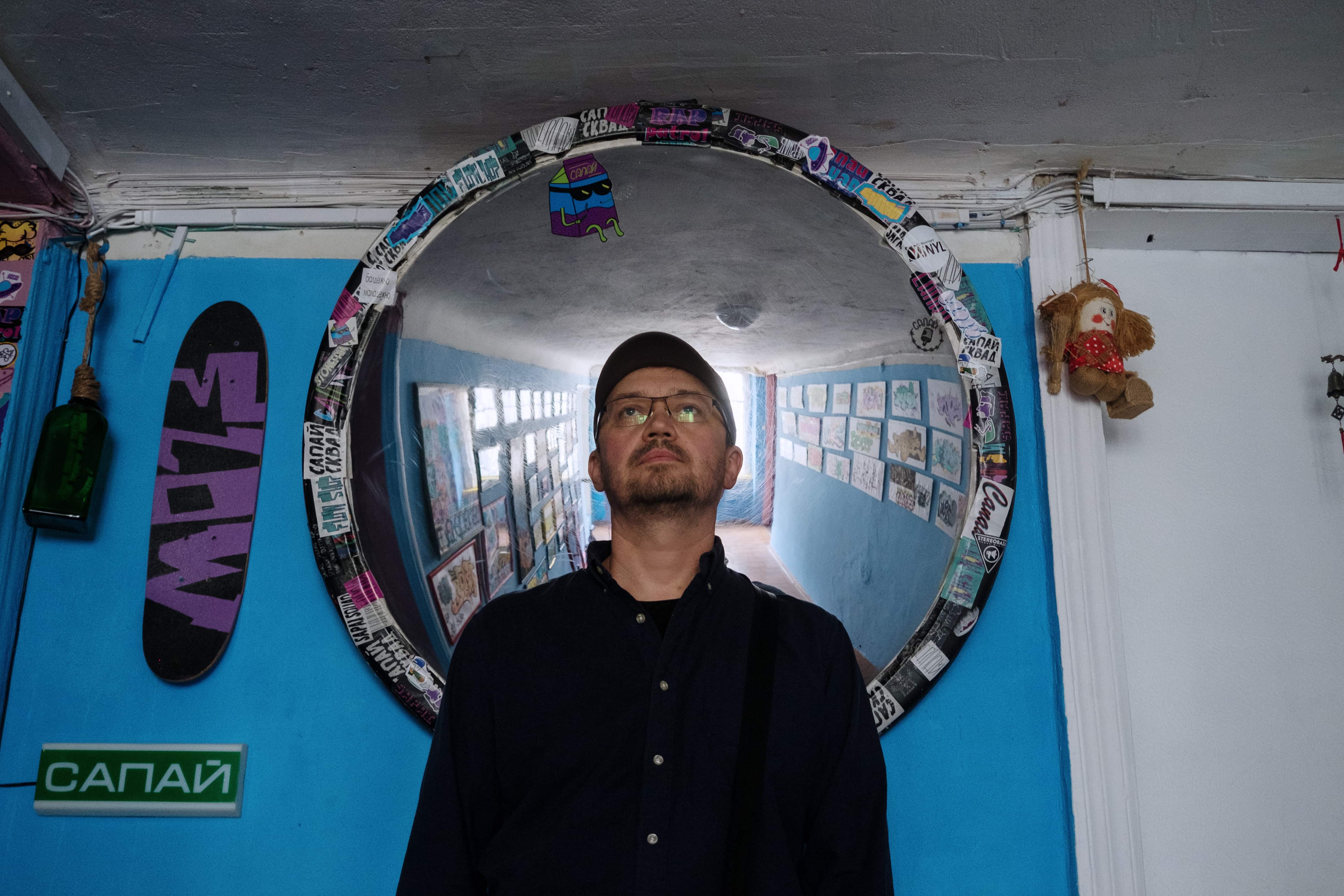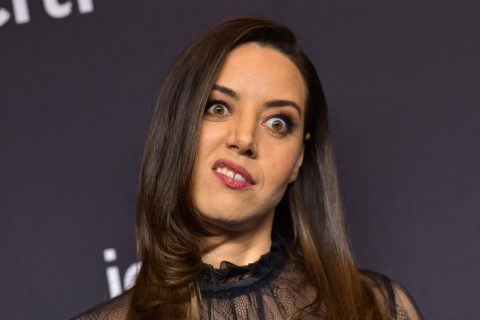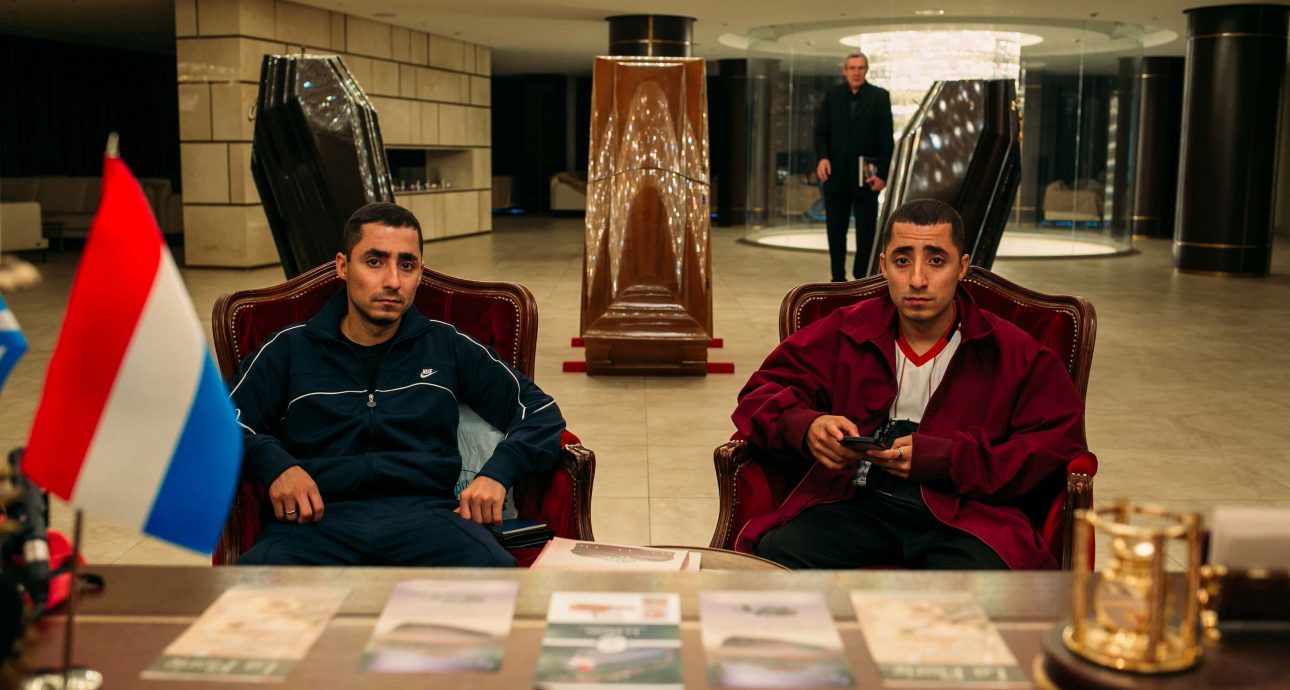
Antonio Lukich: “In the Film ‘Luxembourg, Luxembourg,’ I Want to Make a Lot of Changes”
Director Antonio Lukich is known for making comedic films about Ukraine. Lukich graduated from the Kyiv National I. K. Karpenko-Kary Theatre, Cinema and Television University and initially worked on documentary films before transitioning to feature films. His first notable work, the absurd comedy “Who Framed Kim Kuzin?”, was actually made during his studies.
Nowadays, Antonio Lukich is considered one of the most promising Ukrainian directors. His recent film, “Luxembourg, Luxembourg,” a lyrical story about two brothers featuring the members of the band “Kurhan & Agregat,” Ramil and Amil Nasirov, was showcased at the Venice Film Festival. Within a month of its release in Ukraine, the film grossed nearly 30 million hryvnias, becoming one of the top ten highest-grossing Ukrainian films of the post-independence era and establishing Lukich as the country’s leading comedy director.
In an interview with Bird in Flight, Antonio Lukich discussed why he no longer wants to make self-referential films, which scenes from “Luxembourg” he would modify, and why, despite the film’s popularity in Ukraine, it is not included in the main competitions of international film festivals.
Attention, there are spoilers in the interview!
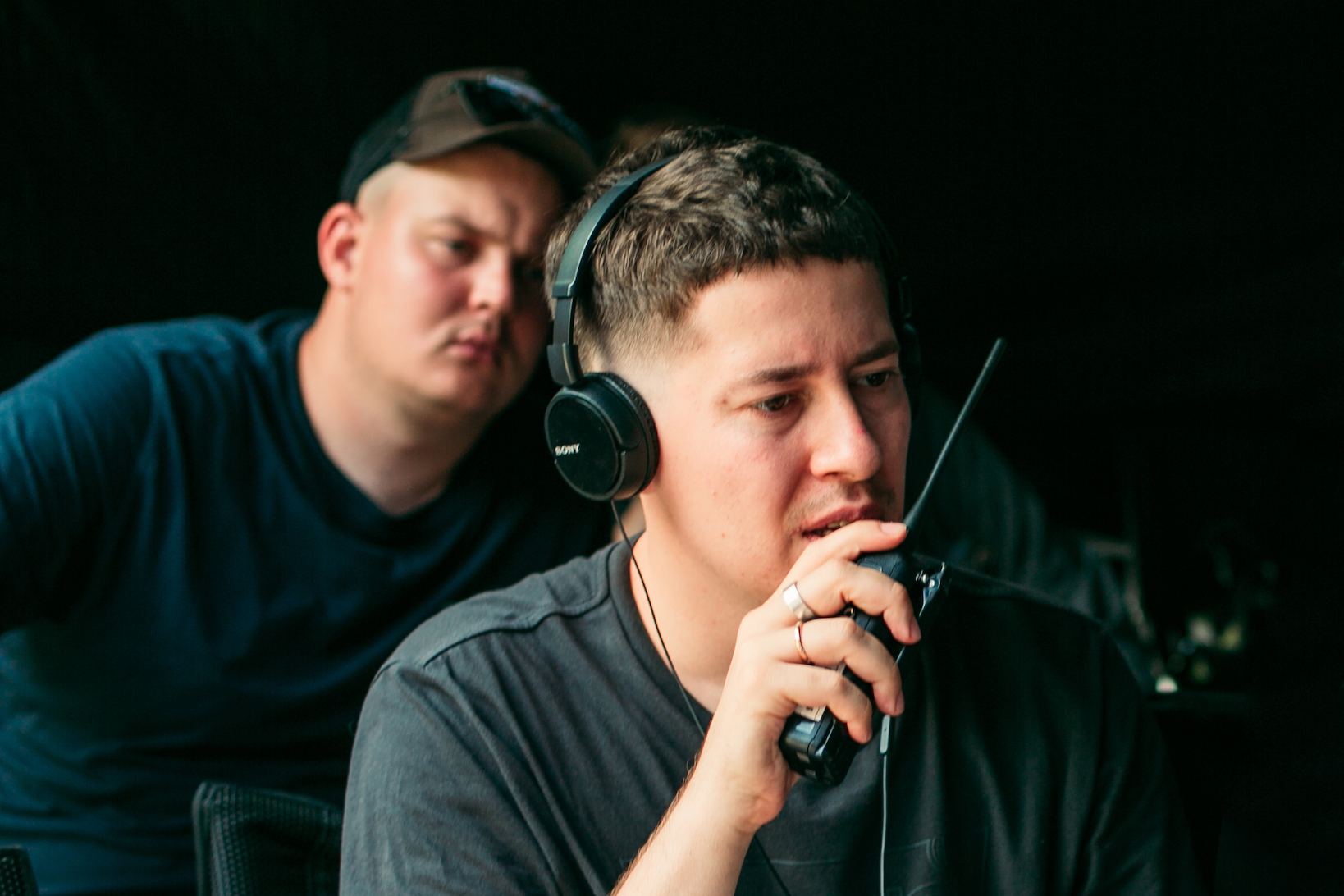
Congratulations on the success of “Luxembourg” becoming one of the highest-grossing Ukrainian films. Are you pleased with the result?
Certainly. But I believe that the producers and distributors are more satisfied with the box office success. I, on the other hand, am delighted with the audience feedback. It is a common saying that cinema, like a jewel, is made not for everyone, but for one person. When at least one viewer says that they saw themselves in your story, it means there is demand for the film. In the case of “Luxembourg,” there were many such viewers.
After the release of “My Thoughts Are Silent”, you mentioned facing the challenge of the second film. Did you feel a high pressure from the audience’s expectations? And now, the second film has become successful. So, it turns out your worry was in vain?
During the process of working on the script for “Luxembourg,” the producer Volodya Yatsenko and I came to the understanding that I didn’t have any issues with the second film, but the third one would undoubtedly pose a challenge.
Why?
First of all, back then I had a large reserve of personal stories. Now I no longer want to talk about personal matters and I’m glad that the reserve of personal stories has run out because being the character of your own film is not cool.
I’m glad that my reserve of personal stories has run out because being the character of your own film isn’t cool.
Secondly, the first two films were reflections on the past, but today we are all focused on thoughts about the future.
“Who Framed Kim Kuzin?”, “It Was Showering in Manchester”, “My Thoughts Are Silent”, and “Luxembourg, Luxembourg” – which of these films did you connect with the most personally?
In “My Thoughts Are Silent.” There, I have more of my observations about my life as a stranger and provincial who no longer feels Uzhhorod as home and yet does not yet feel Kyiv as home.
In “Who Framed Kim Kuzin?”, there is a lot of my alter ego. A cool version of myself, Antonio, who felt the freedom to do whatever he wanted.
It seemed to me that the theme of self-discovery, which is introduced in “Kuzin”, you continue in all your films. Is that so?
It’s a certain inner reference point. When making a film, it’s important to remain a sober-minded author and create what you are capable of. I don’t believe that the script of “Apocalypse Now” or “Saving Private Ryan” can be transferred to Ukrainian realities. When you translate the Hollywood film model into our reality, it doesn’t work.
In fact, successful Ukrainian films are the works of directors who have found the right form and narrative to explain the life that is happening here.
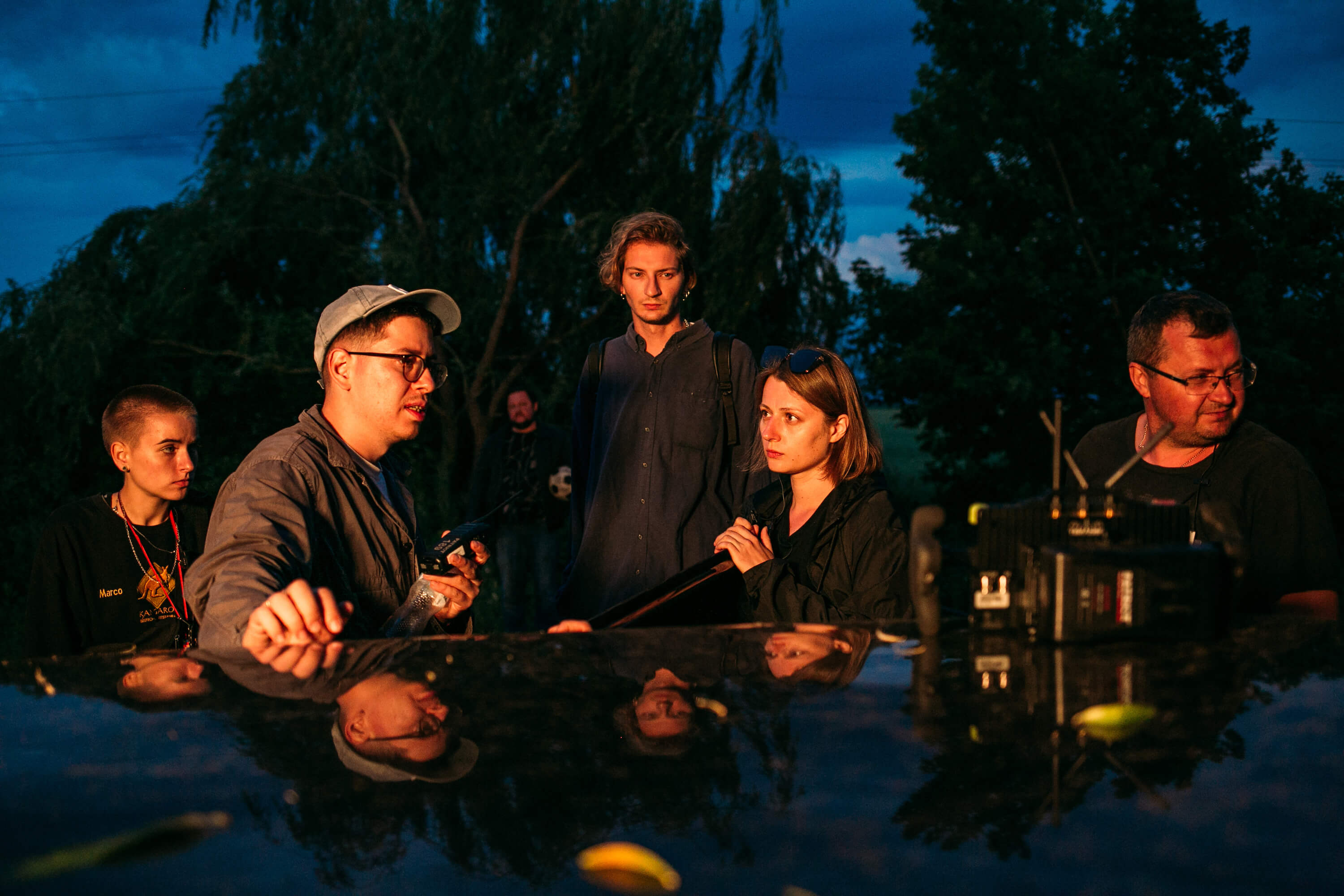
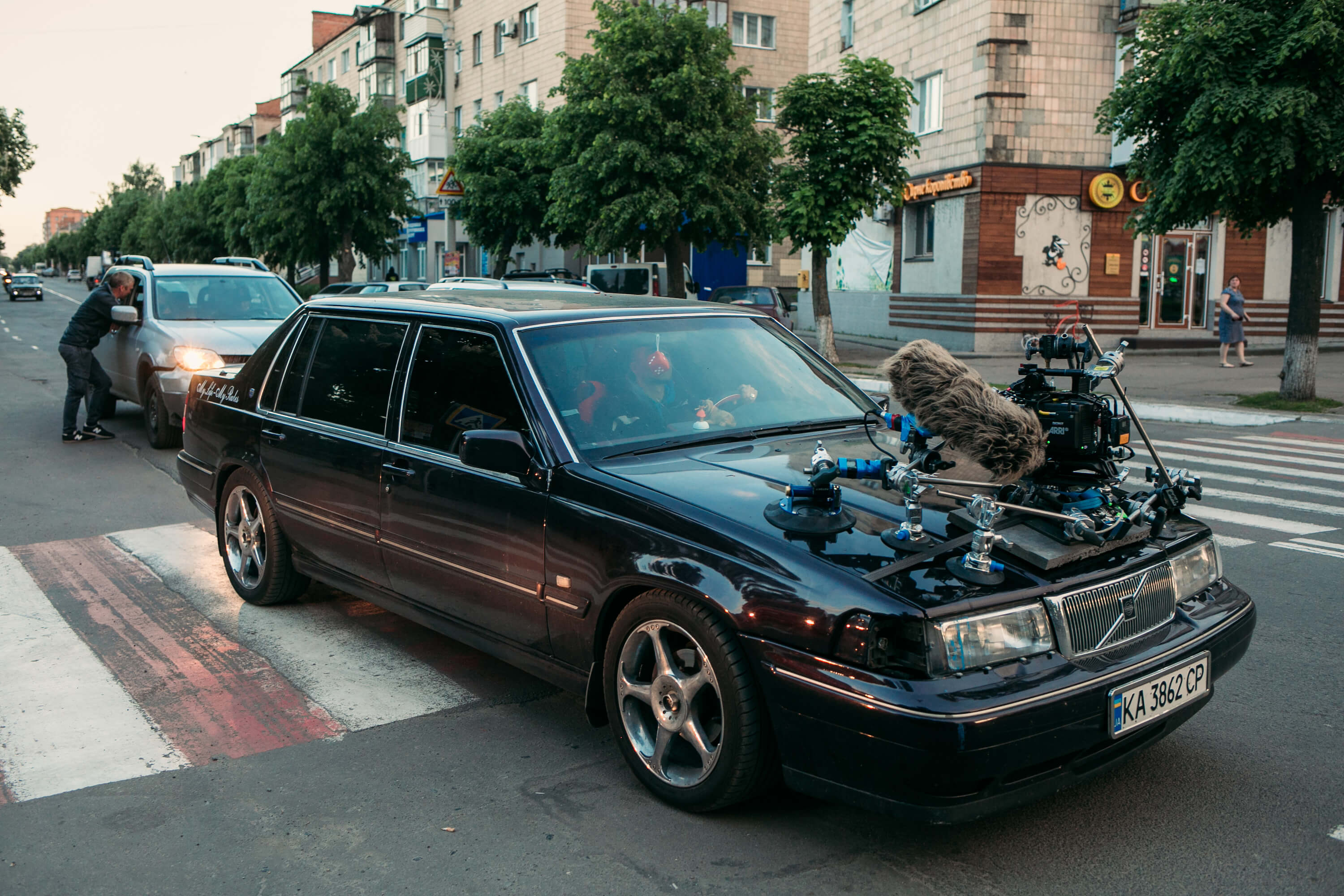
Doesn’t the TV series “Sex, Insta, and ZNO,” directed by you, attempt to transplant a purely Hollywood form into Ukrainian reality?
This series has an author, screenwriter, and showrunner, so it’s difficult for me to say what worked and what didn’t. Surely, something definitely succeeded.
“Sex, Insta, and ZNO” was compared to “Euphoria,” and that comparison didn’t work in our favor. It’s fun to compare a series with a budget of $3 million per episode to a series with a budget of $10,000 per episode. But that’s just one aspect of the project.
Another, more important aspect is that the exported civilization doesn’t always fit into our reality. Ukrainian directors are trying to find an emulsifier that allows them to blend this form with the local reality. Many experience failure.
For example, who?
It is unethical to name those who have not succeeded. I prefer to mention successful cases instead. For example, “The Wild Fields,” directed by Yaroslav Lodygin and produced by Volodya Yatsenko. However, it seems to me that despite the film’s many merits, the filmmakers were unable to find a successful form within themselves.
What would you change in “The Wild Fields”?
I would change many things. The camera work, the sound, and most importantly, the casting, although I believe that there are no bad actors, there are directors who give imprecise tasks. Please include in the material that I have great respect for Yaroslav Lodygin and Volodya Yatsenko.
Whom would you change among the actors?
I won’t say. I don’t want to make enemies among the actors, as I’m already afraid of them.
Then tell me, which actors from “The Wild Fields” would you definitely keep?
I would keep the main character, but I would give him a different approach to the role, and also Volodymyr Yamnenko.
In your works, there are a lot of witty jokes. How do you come up with them?
The paradox is that in my films, there are no jokes, gags, or sketches. There are simply scenes. I don’t like it when humor in movies is emphasized.
In my films, there are no jokes, gags, or sketches.
The character’s nature in cinema is revealed in the moment when they make a choice. That’s why I strive to place the character in a very uncomfortable situation and compel them to act. The pause that arises when they don’t yet know what to do is the core of my exploration. I find it intriguing to investigate life as an uncomfortable place.
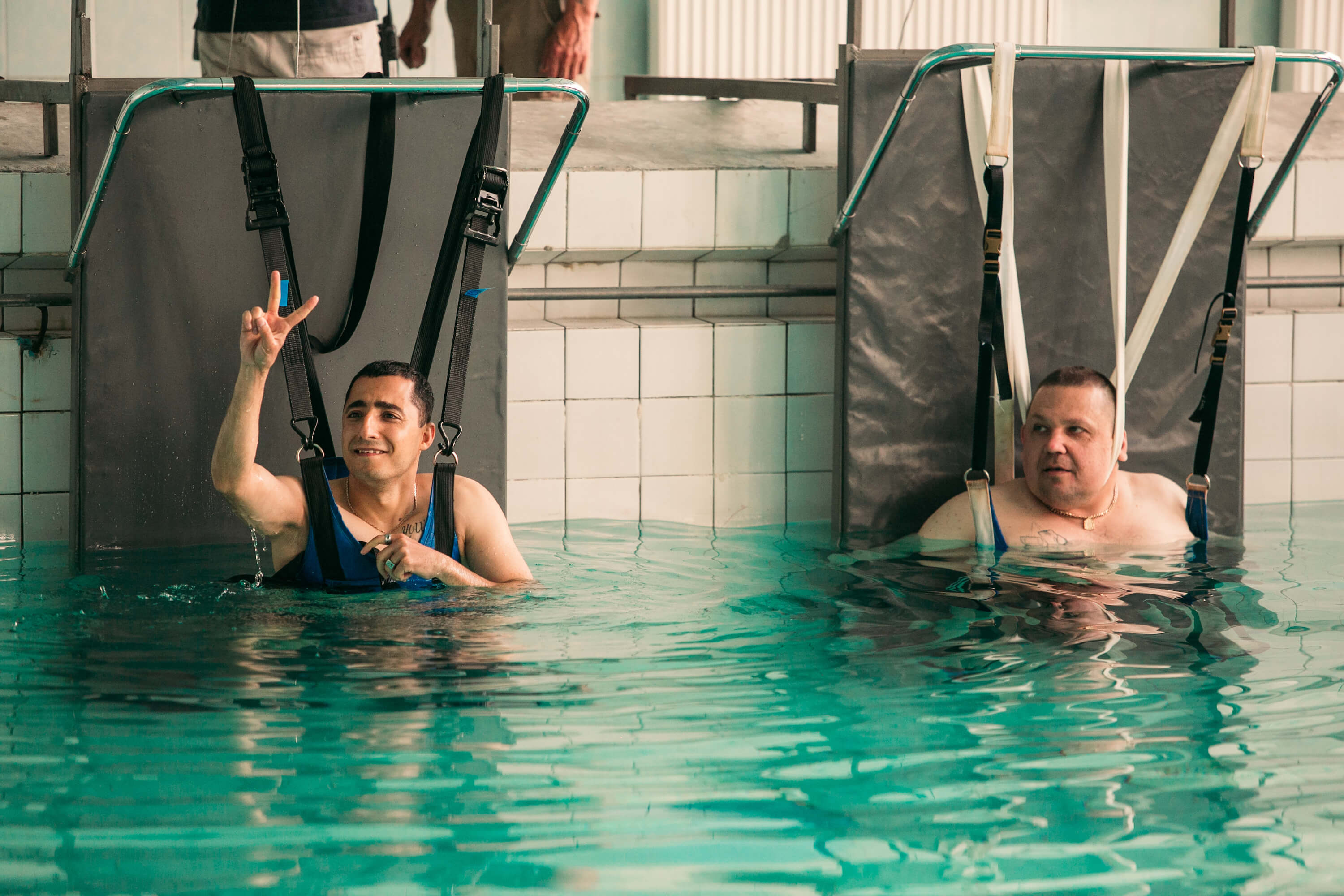
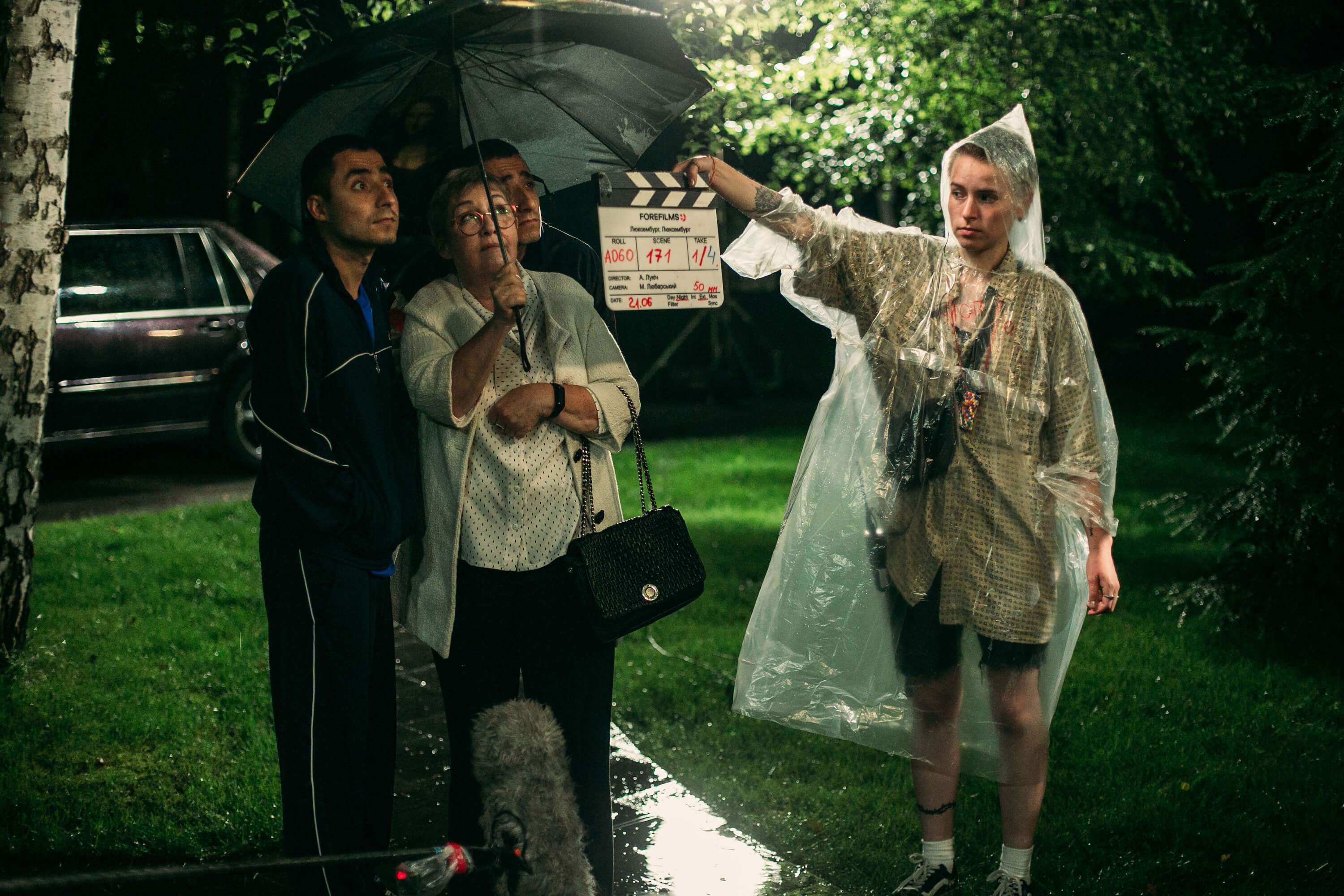
Let’s talk about “Luxembourg, Luxembourg.” The feedback on it in Ukraine was overwhelmingly positive. Does such a reaction as a director not relax you?
No, because the feedback was mixed abroad. I’m not saying that I made a perfect film, but it accomplished its objectives. Among other things, it showed the international audience that there is contemporary cinema in Ukraine and that Ukrainians have a sense of humor.
What was “Luxembourg, Luxembourg” criticized for abroad?
They wrote something like “comedy is good, but the drama is flat.” Such comments are usually made when people watch a film superficially from the perspective of “entertain me.”
This year, I was fortunate to be on the jury of the festival in Gothenburg. I watched nine Scandinavian films. One of them, “Let the River Flow,” told the story of the struggle of the Sami people who were oppressed in the 1950s-1960s. The film was built on local context. For example, the characters spoke the Sami language, and others responded to them in Norwegian. This created intense tension in the scenes that, without knowing the context, I didn’t always grasp. Perhaps “Luxembourg, Luxembourg” was watched abroad in the same way — without understanding the context and subtleties.
In general, your film is understandable. Were there any contexts that might have been overlooked?
I think the model of a problematic father like in “Luxembourg, Luxembourg” is relatable specifically to Ukrainians. It’s possible that the dramas of Vasya and Kolya’s mother, who, in her quest for a normal life, ended up with a boring husband, were not fully understood at international festivals.
But to be honest, after the initial screenings of “My Thoughts Are Silent,” I didn’t feel the need to change anything in the film – everything was in its place. However, with “Luxembourg, Luxembourg,” I already want to make many changes.
For example?
There was a version of the screenplay where the old woman, who had broken her arm, went abroad with her brothers. She used to live in the GDR, so she knows German. I would also be interested in filming this version of the story.
I also want Kolya to return to Ukraine together with Vasya. And in the moment of meeting their father, he would be sleeping in the back seat of the car. Then Vasya would face a choice: to wake up her brother or not? But to lead the characters to this scene, many other things in the film would need to be changed.
Although the current ending also works, and the fact that Vasya is the one who meets their father is considered one of the achievements of the film. This is an understanding of the paradox that the Creator does not always show themselves to the one who deserves it.
But Vasya leads a righteous life: he does not break the law, loves his wife, and cares for his son. Doesn’t he deserve a miracle?
No.
Vasya is my confession of my own sins. He does everything wrong. He doesn’t control his own life, it doesn’t belong to him. In this regard, his brother lives the right way. By the way, he might be the only character who truly changes because to enter a better world, one needs to transform themselves.
Police officer Vasya is my confession of my own sins. He does everything wrong.
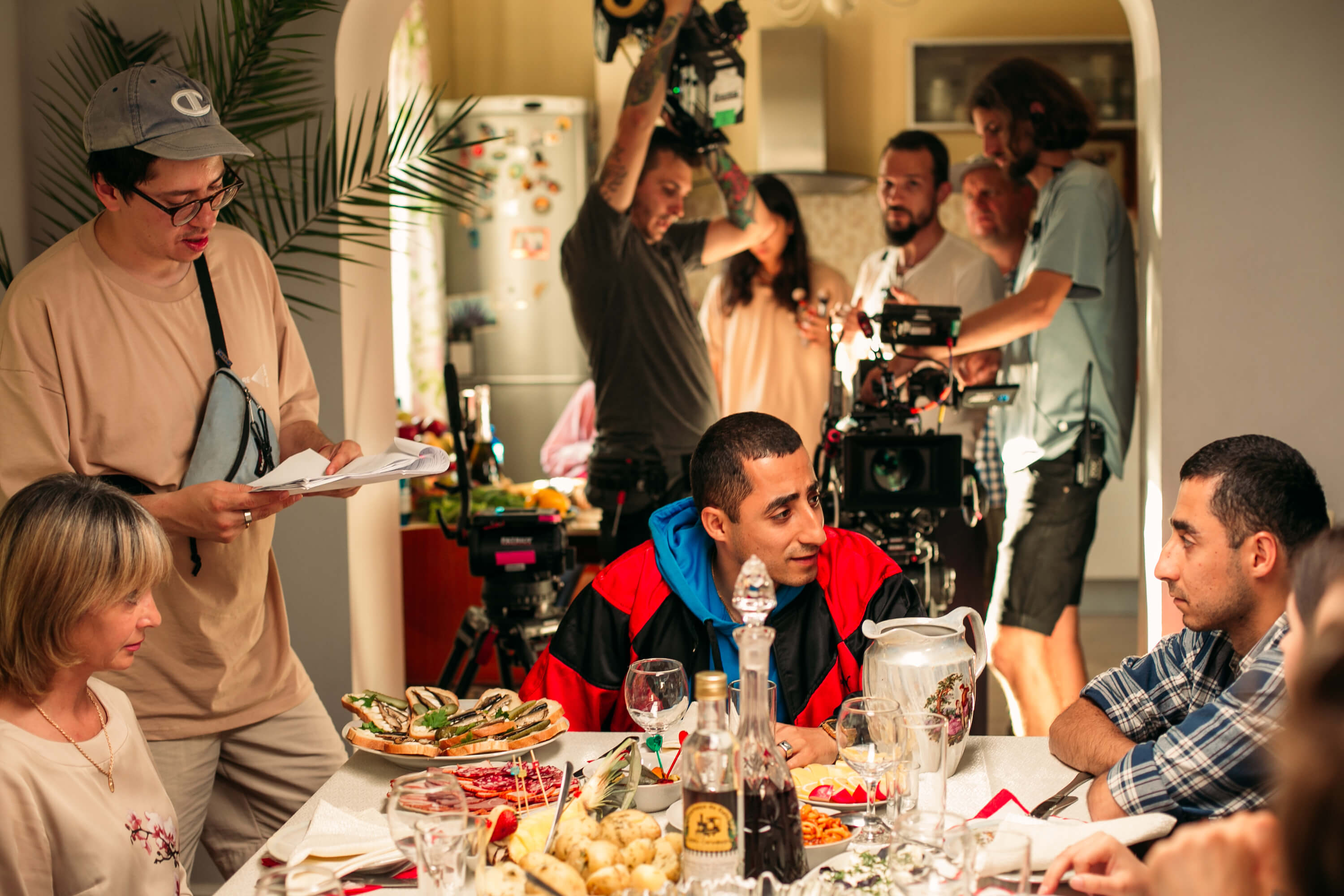
Your film is very atmospheric, and the jokes in it are clever. However, as a viewer, I still had some questions about the plot. And since we’ve already started talking about the brothers, let me ask: what purpose does Vasya serve in the story? You don’t fully develop this character, and in my opinion, removing him from the film would not detract from the overall picture.
At first, I wrote the script for the twins, but then realizing that I probably wouldn’t find the right actors, I rewrote it for Kolya, and then again for the twins. The producers held onto the idea of the twins because they thought it would be a strong selling point for the film – movies about twins are always interesting to watch.
So, the answer to your question is that the twins have their place in the story.
The version of the script written solely for Kolya also worked quite well. The Luxembourg part was different, with the protagonist meeting his father’s friends. Vasya’s story is actually a subplot from another film I was trying to write, exploring my own life. I was troubled by the question of how to provide something for my family while remaining in the profession.
In the film, there is a scene where Vasya convincingly explains why they shouldn’t go, but then he ends up going to Luxembourg. Why is that?
Because Vasya believes that by removing all the obstacles, he will make his life happier. By saving his brother from prison, he takes him abroad, from where he cannot return. Additionally, he is also curious to find out who his father was.
You say that you don’t emphasize the jokes. Let’s take the scene in the hospital: in my opinion, it doesn’t move the plot forward. It seemed to me that you left it precisely because there is a joke in it.
It’s sad if you truly think that way.
We’re all used to knowing only the good things about our parents.
So when the boys arrive at the hospital, Kolya wants to see the perfect father, the one who wasn’t discarded like a rag but placed in a private room with flowers and fruits. Is that a joke? No, it’s a perfect scene.
When you grow up without a father, you see him in every person—whether they’re wrapped in bandages or swimming in a pool. The funny thing is, you have to search for him within yourself. But you understand this later, when you become a father yourself.
In essence, “Luxembourg, Luxembourg” is an attempt to see the father everywhere. It’s also an attempt to do something professional. And it succeeded. Although strange things happen with the film. We showcase it at prestigious festivals, but for some reason, it’s not included in the main competition.
Why do you think?
The international audience has certain expectations when it comes to Ukrainian cinema. They expect stories about oppressed people who need something. But I believe that soon we will be perceived with respect, rather than just pity.
The international audience expects stories about oppressed people from Ukrainian cinema.
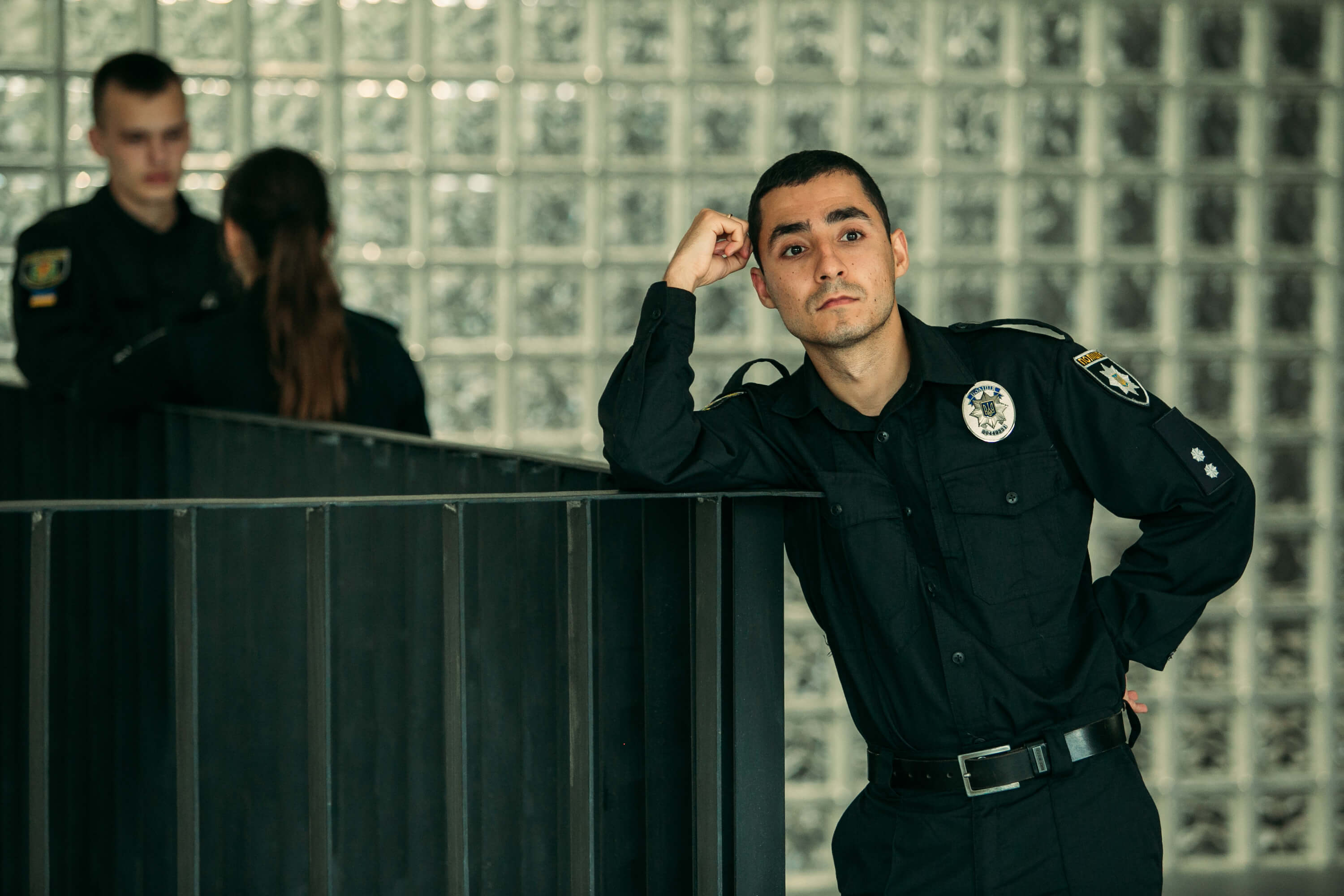
You often talk about God, and your films have religious themes. Are you a believer?
I am a deeply religious person, but not religious in the traditional sense. My father was a Catholic, and through my mother, I am Orthodox. I sometimes go to church. I navigate between faith and superstition – in this regard, I am a typical representative of Ukraine. In fact, my films are an attempt to find a balance between these two narratives.
My films are an attempt to find a balance between faith and superstition.
Are you still concerned about earning money in the film industry?
Yes, very much. A director works for a fee. You divide three years of your life for a not very significant amount of money.
What is your fee for “Luxembourg”?
I cannot disclose the amount. But Volodya Yatsenko is a wise producer. He incentivizes directors with a percentage of the box office. It’s motivating because if the film succeeds, you will receive around $3,000 from the box office.
Do you have a percentage of the box office for the film “Luxembourg, Luxembourg”?
Yes. However, it is meager, but still a pleasant bonus.
What will your next film be about?
I can’t reveal much about the film. I will say that I will be working with the Yatsenko family again. It will be a film about a person who seems to have died but somehow continues to live, and everyone around them assures them that everything will be fine. After this film, Yorgos Lanthimos will envy and say, “Why didn’t I come up with that?”
The film will be satirical and dark, closer to my “Who Framed Kim Kuzin?” than “Thoughts.” Because I’m tired of being restrained in everything, including in my films.
All photos: press service of the film “Luxembourg, Luxembourg.”
New and best
